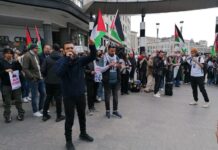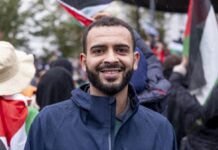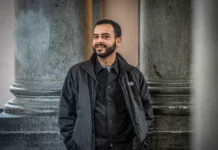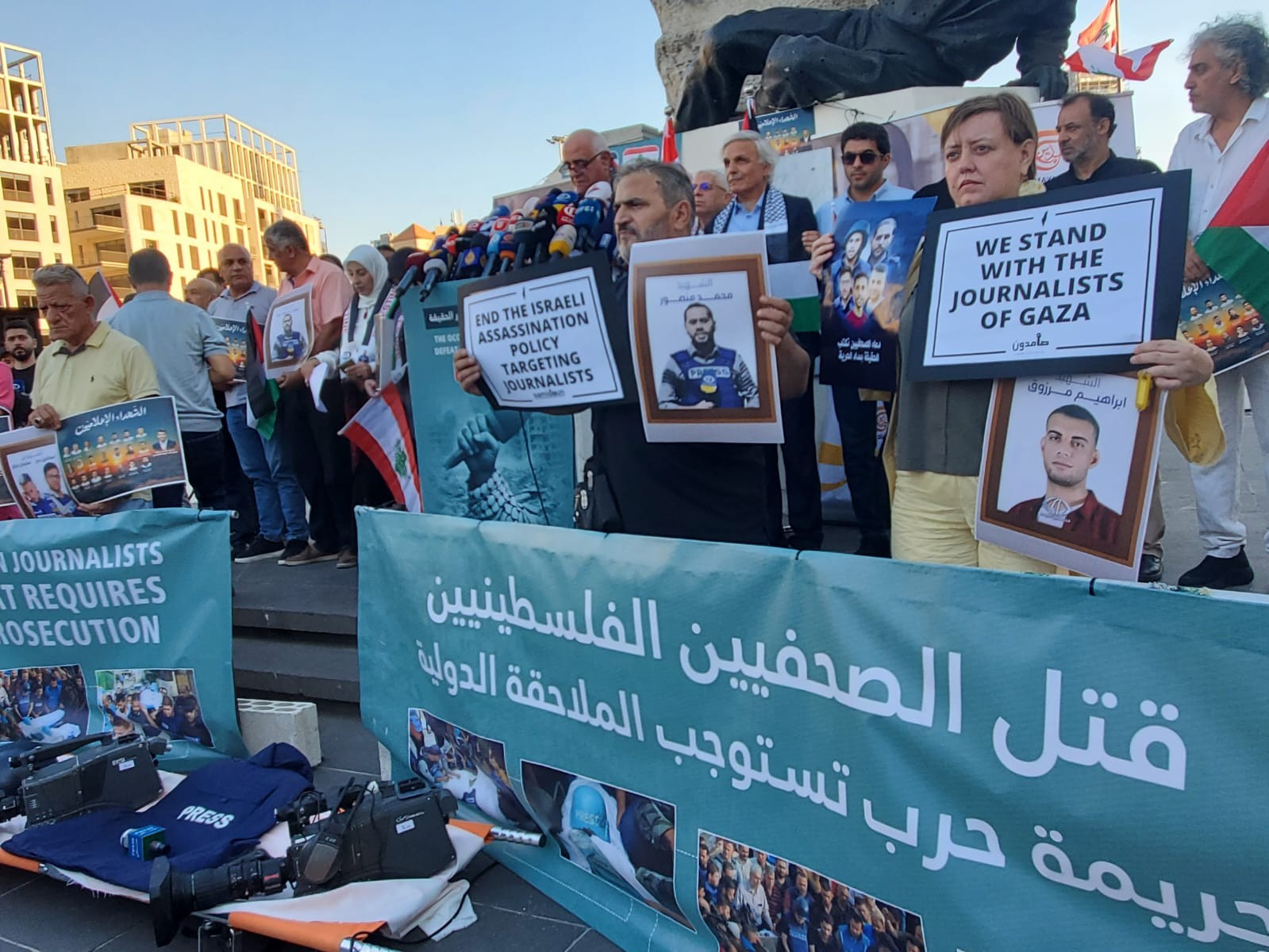 Beirut – Monday, 1 September 2025
Beirut – Monday, 1 September 2025
On Monday, 1 September, an international day of media action and solidarity with journalists targeted for assassination by the Zionist regime as part of its genocide in Gaza, Martyrs’ Square in Beirut was the site of a solidarity stand called for by Lebanese and Palestinian journalists, in support of Palestinian journalists in the Gaza Strip who face assassinations, bombardment, and siege at the hands of Zionist occupation forces.
Participants raised slogans demanding an end to the Israeli policy of assassinations against journalists and calling for the freedom of journalists held in occupation prisons, affirming their stance alongside their colleagues in Gaza in confronting the open war on truth and the free word. Samidoun participated in the event, carrying calls to action for international journalists and rights defenders, and denouncing the assassination policy and the targeting of journalists, yet more war crimes and crimes against humanity carried out by the genocidal regime.
Over 247 journalists in Palestine have been assassinated by the Zionist occupation, including Anas al-Sharif, Ismail al-Ghoul, Hassan Esleih, Hossam Shabat, Wafa al-Udaini, Maryam Abu Daqqa, and, most recently, Islam Abed, martyred on 31 August. At the same time, over 50 Palestinian journalists are held in occupation prisons, subjected to severe torture, starvation and isolation as part of a systematic policy of the targeting of Palestinian journalists’ voices and dedicated work exposing the realities of the Zionist-imperialist genocide before the eyes of the world.
Brief speeches were delivered during the gathering by Lebanese Press Syndicate head Awni El-Kaaki, Editors’ Syndicate head Joseph Kossaifi, and Palestinian journalist Walid Kilani, who delivered the speech on behalf of Palestinian journalists collectively.
Journalist Wafaa Bahani delivered the opening speech at the event, affirming that the Israeli occupation continues targeting journalists in Gaza and across occupied Palestine “because they expose its crimes and unmask its brutality.” She stressed that “the blood of journalists is not cheap,” and that “the truth will not die, no matter how Zionist criminality escalates.”
Bahani pointed out that the caravan of martyrs of truth and the word is long, beginning with Ghassan Kanafani, Ali Fouda, and Shireen Abu Akleh, reaching Anas al-Sharif, Farah Omar, Rabie al-Maamari, Ghassan Najjar, Mohammed Reda, Wissam Qassam, Hadi al-Sayyed, and Issam Abdallah, stressing that journalists “are continuing on the path of truth until liberation.”
She also expressed full solidarity with journalists in Yemen, mourning colleague Hashem Sharaf al-Din, the Yemeni Minister of Information and former correspondent for Al-Manar. He was recently martyred in the series of assassinations targeting the Yemeni government in Sanaa, led by Prime Minster Ahmad al-Rahwi, on 28 August, affirming that “his message will remain alive as long as the Yemeni people fight in the trenches of freedom and dignity.”
For her part, Charlotte Kates, international coordinator of the Samidoun Palestinian Prisoner Solidarity Network, praised the media initiative in Beirut, considering the step “a strong message confronting the occupation and its attempts to assassinate the voice of truth,” calling for “defense of the Palestinian people and their right to resist until liberation and return.”
Kates emphasized, during meetings with a number of journalists, “the importance of supporting the voice of Palestinian journalists imprisoned in occupation jails, and their colleagues who convey to the world the reality of daily Zionist-U.S. crimes committed against Palestinians in Gaza and throughout occupied Palestine.”
She further denounced the notorious statements made by U.S. envoy Tom Barrack against Lebanese journalists while demanding that Lebanon concede to the demands of the U.S. and “Israel” to disarm the resistance, describing them as “an arrogant colonial language that reflects the moral degradation of Barrack and those he represents among the war criminals in Washington and Tel Aviv.” She noted that the dehumanization of Palestinian and Lebanese journalists evident in Barrack’s words is part of the same deliberate dehumanization used by the Zionist regime to perpetuate the genocide and the assassination of hundreds of Palestinian journalists in Gaza, and called on Western journalists to uphold their responsibilities to stand by their colleagues and expose the crimes of the Zionist occupation and the imperialist powers.
Text of Wafaa Bahani’s introductory remarks:
Beloved ones, free journalists,
In the name of truth, and in the name of the word that cannot be assassinated…
We meet today in a stand of anger and loyalty, raising our voices for the journalists who are assassinated every day in Gaza, because they exposed and continue to expose the crimes of the occupation.
And this criminal occupation needs no justification for its assassinations… for it is criminal by nature: whoever kills the child will not hesitate to assassinate those who expose his crimes.
From Ghassan Kanafani, to Ali Fouda, to Shireen Abu Akleh, to Maryam Abu Daqqa, to Mohammed Mansour, to Mohammed Balousha, Anas al-Sharif, and a long constellation of martyred journalists — they are the ones who walked their path of giving and sacrifice, who preserved their words and images, and who remain like the elderflower in our memory, fragrant; steadfast like the roots of the olive tree; lofty and unyielding; martyred while standing upright.
And we also recall the souls of the martyrs of journalism in Lebanon, who were assassinated by the occupation in the South: Farah Omar, Rabie al-Maamari, Issam Abdallah, Mohammed Shehadeh, and the list goes on.
They are like the mighty cedar that no storm can shake, like the phoenix that rises from its ashes stronger, keeping the voice of truth alive, and their word a flame that stirs the human conscience.
And we do not forget the militant journalist and Yemeni Minister of Information, Hashem Sharaf al-Din, who was once a correspondent for Al-Manar, and whom the Zionist enemy treacherously assassinated in a targeted strike, adding his name to the caravan of martyrs of truth and the word.
We say it today in a bold voice:
The blood of journalists is not cheap… Their crimes will not silence us… and the truth will never be extinguished.
Our martyred colleagues are present in every image they captured, in every word they wrote, and in every tear they carried from Gaza, from the South, and from Yemen to the conscience of the world.
We shall continue to write, to photograph, to bear witness… until the truth triumphs, and the projects of death and falsification fall.
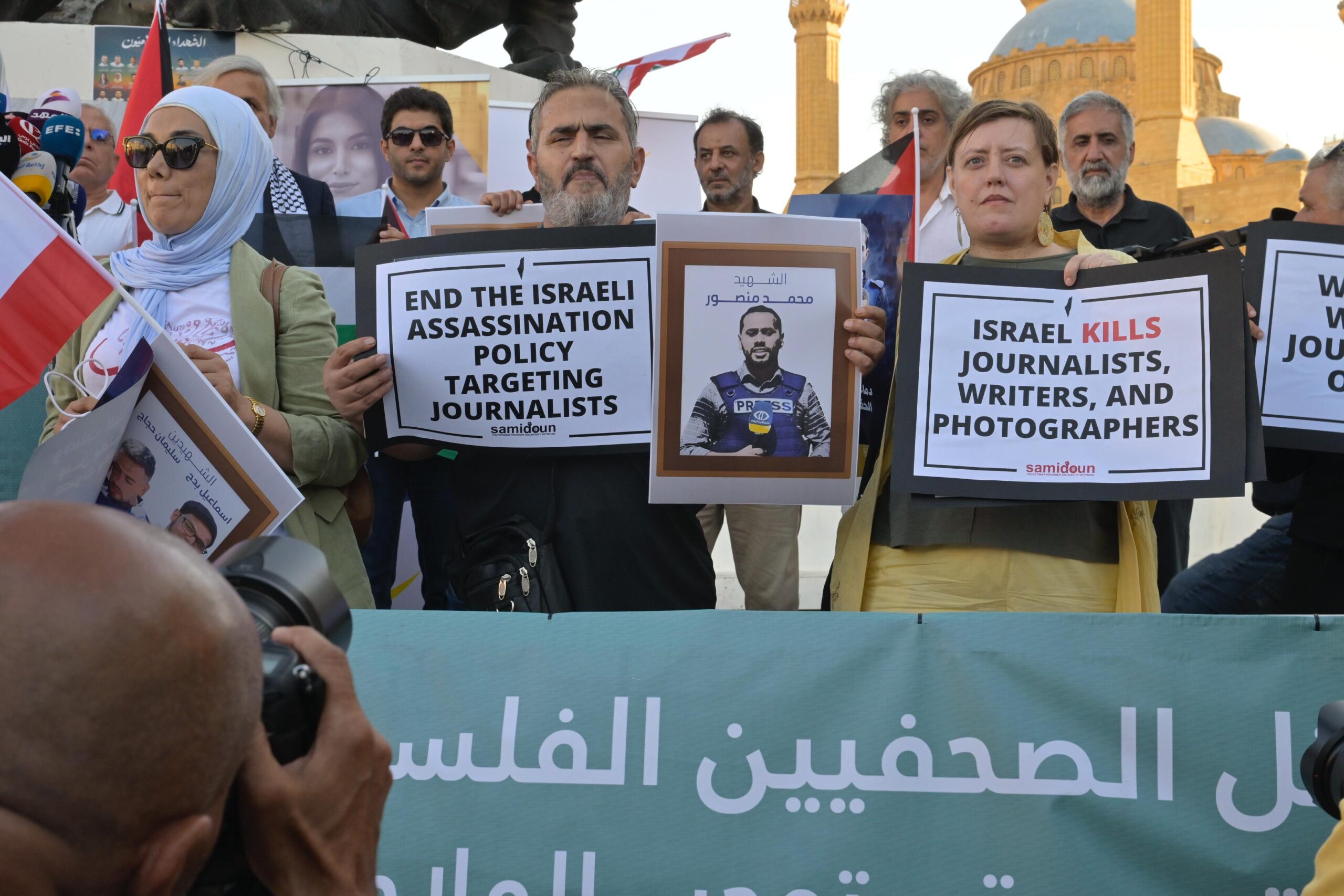
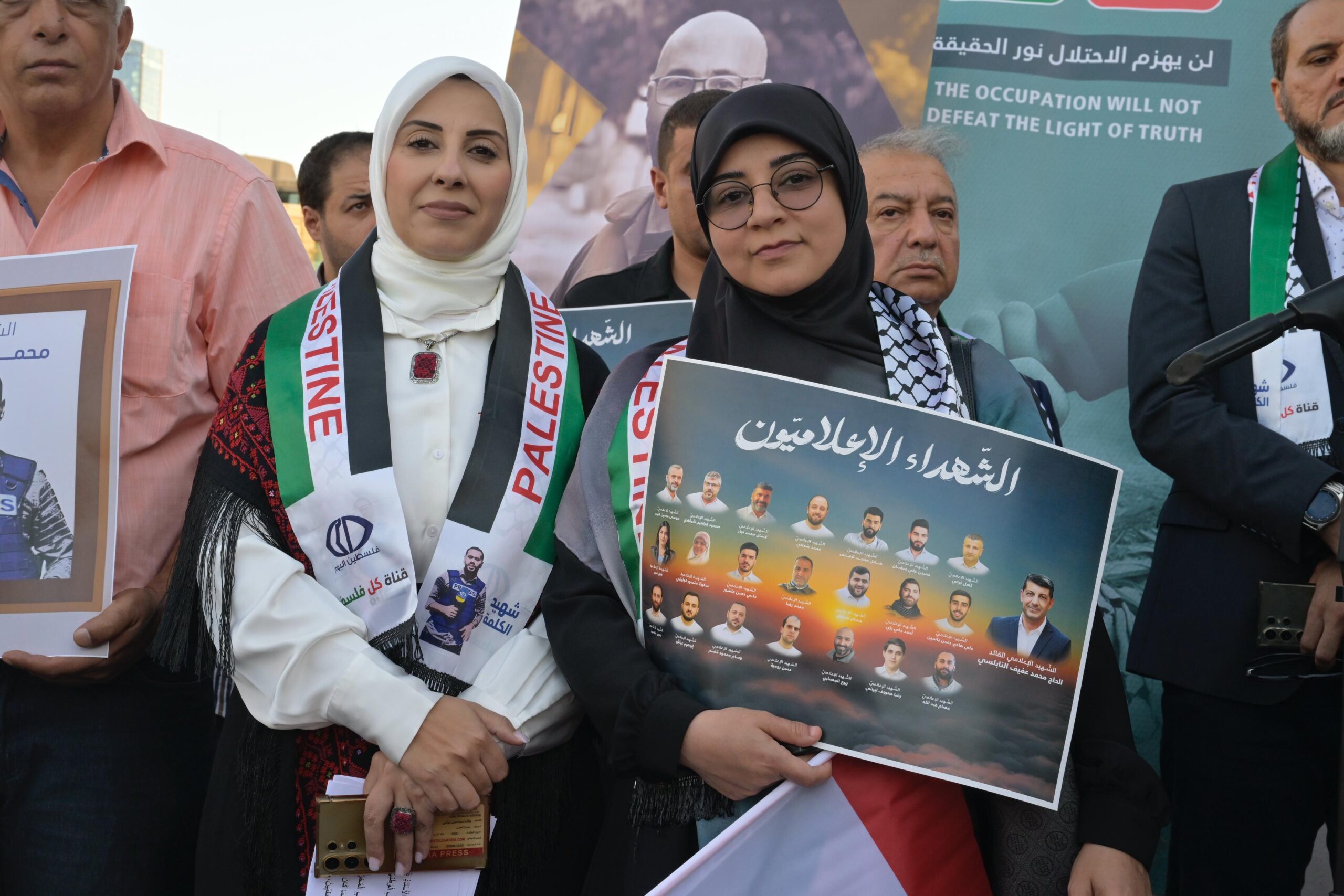
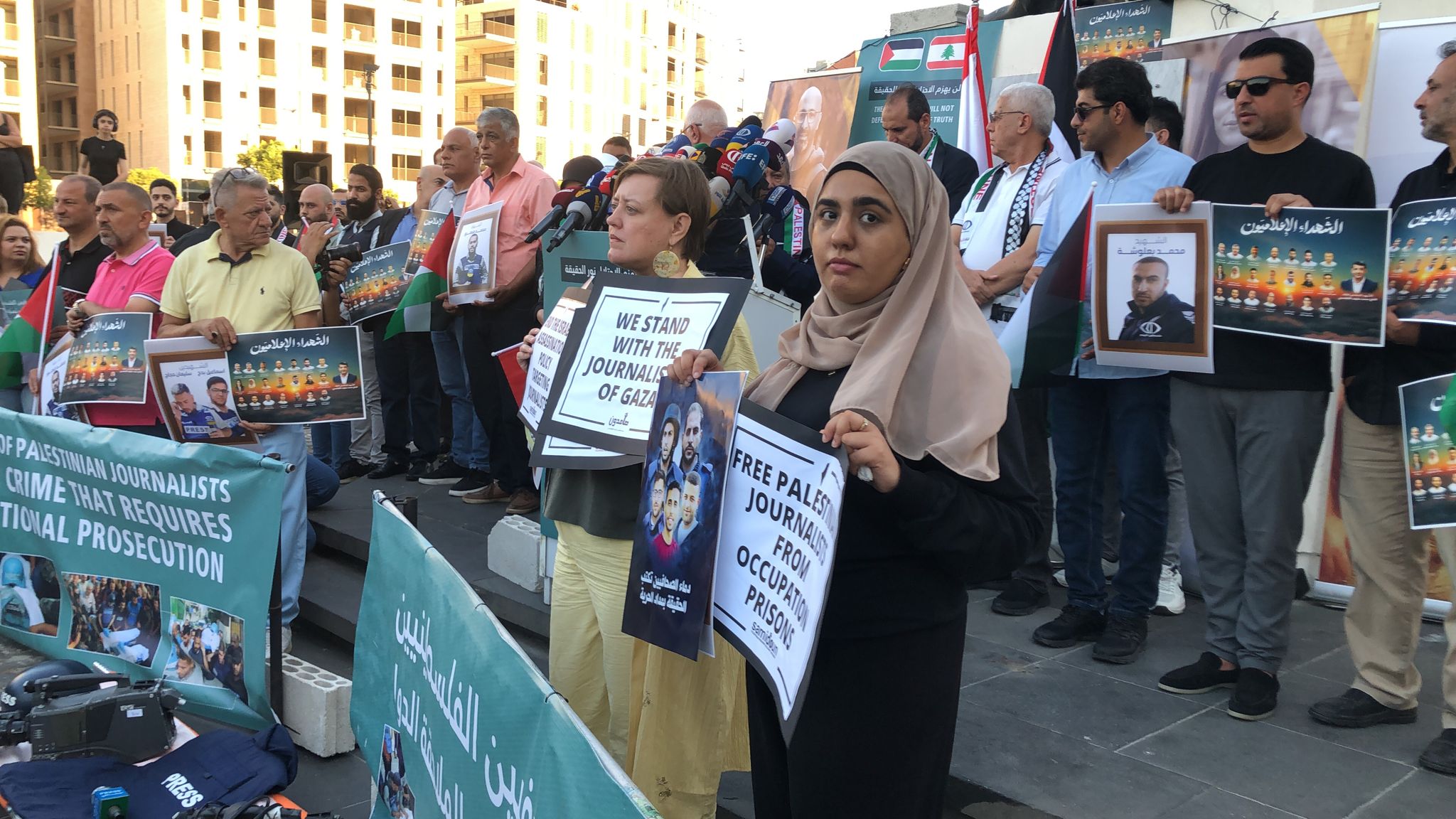
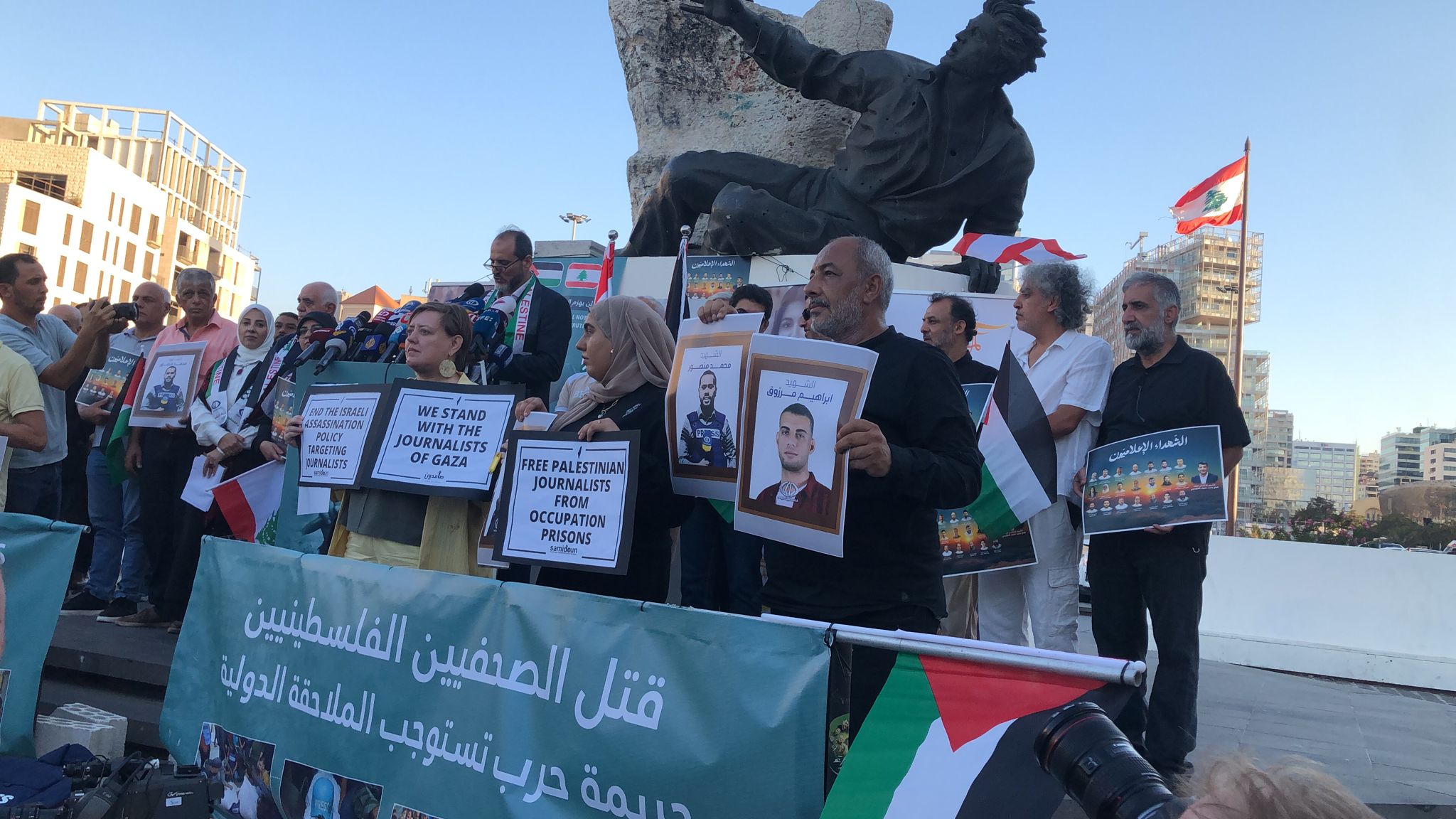
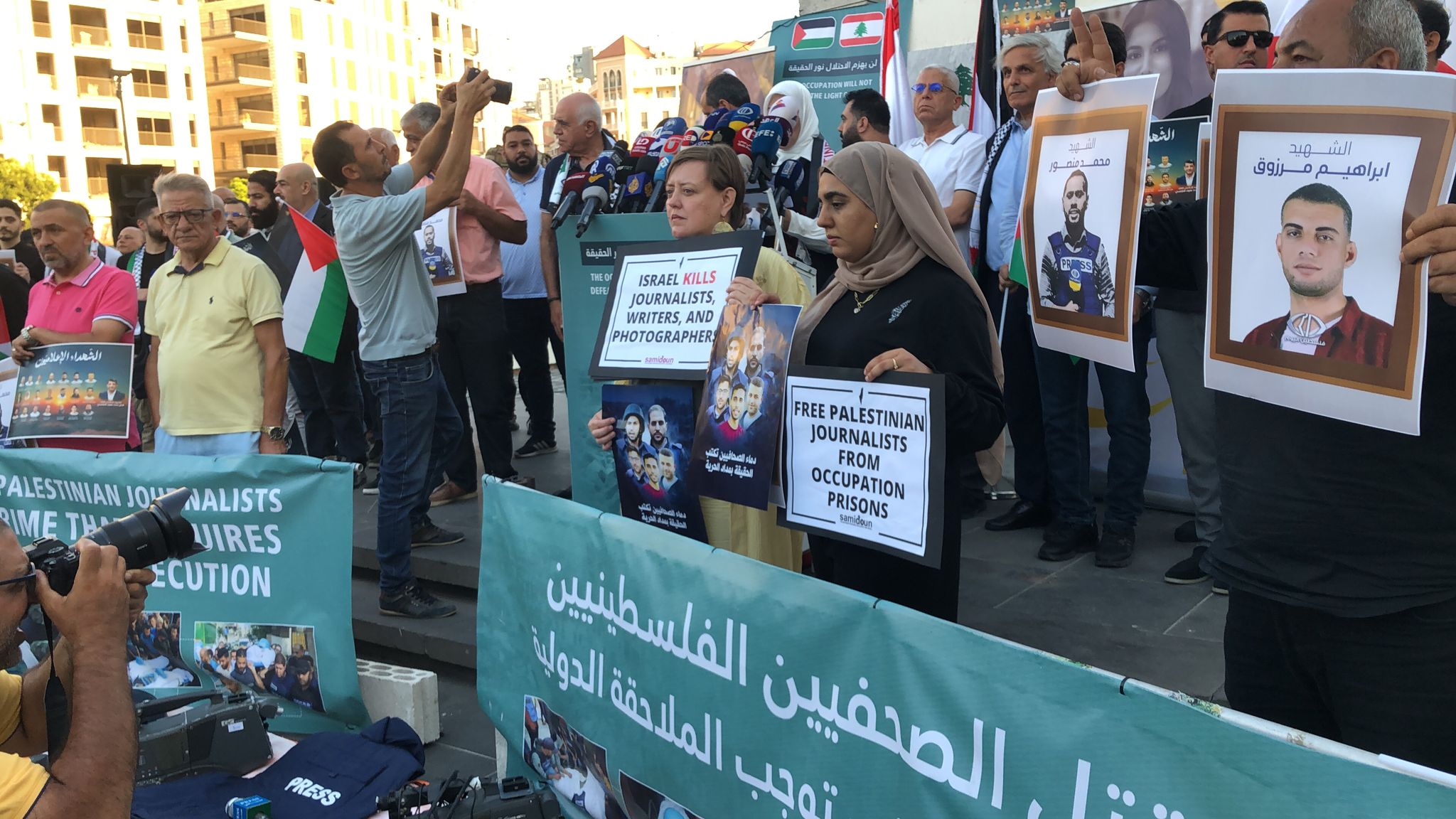
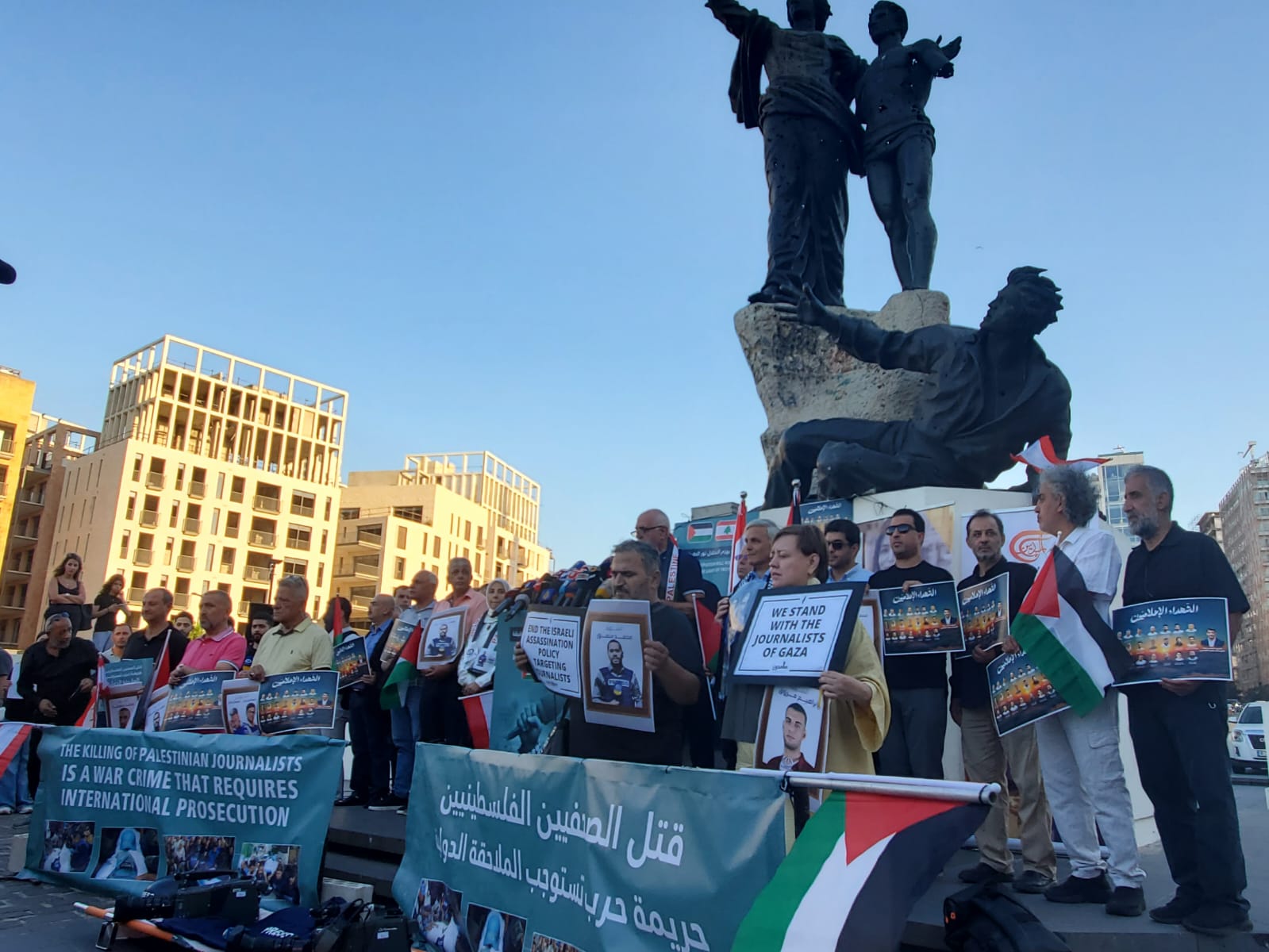
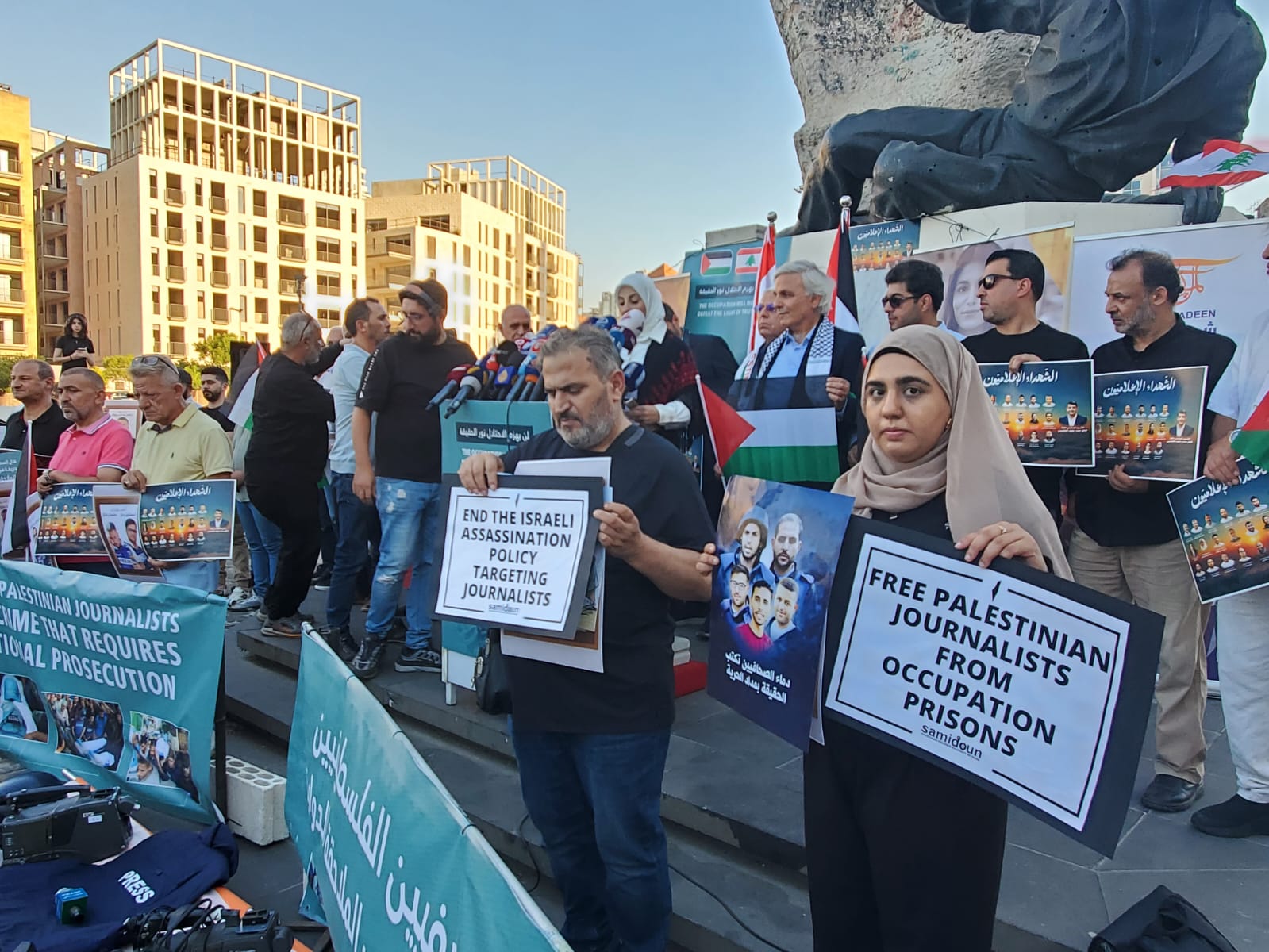
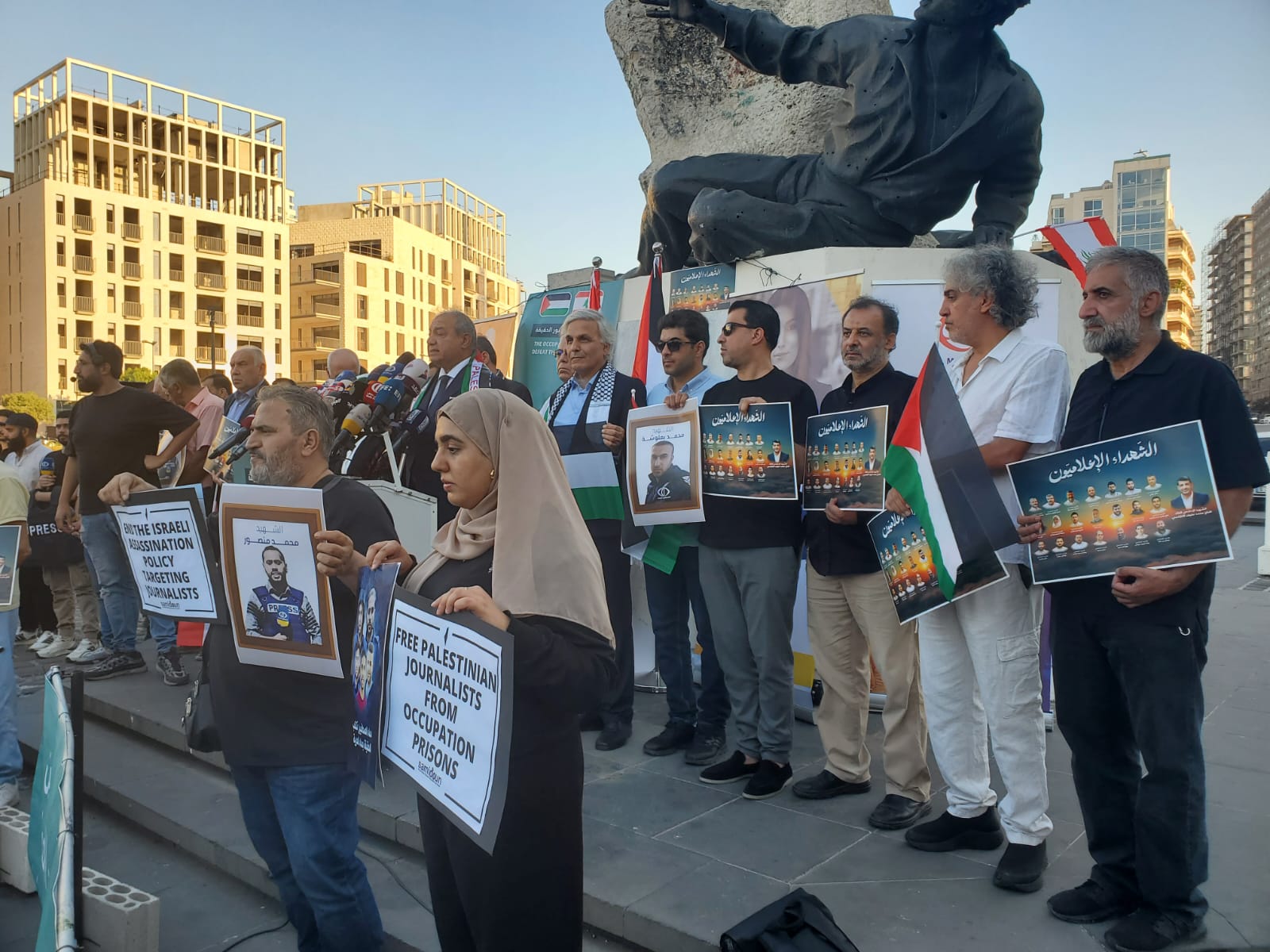
Discover more from Samidoun: Palestinian Prisoner Solidarity Network
Subscribe to get the latest posts sent to your email.

